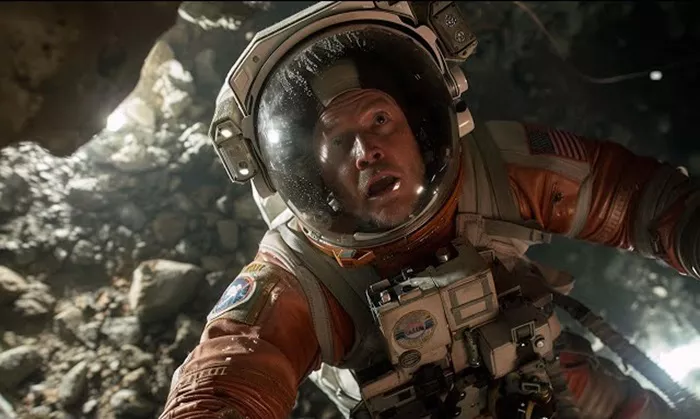Space movies have long captivated audiences with their imaginative settings, extraordinary visuals, and philosophical themes. These films often blend science fiction with adventure, drama, and suspense, offering viewers an immersive experience beyond Earth.
The genre explores everything from humanity’s first steps into space to distant galaxies teeming with alien life. Whether set on spacecraft, distant planets, or in the endless vacuum of the cosmos, space movies provide a unique canvas for storytelling.
The Evolution of Space Movies
Early Pioneers and Groundbreaking Films
The journey of space cinema began with visionaries like Georges Méliès, whose 1902 film A Trip to the Moon set the stage for the genre. Later, Stanley Kubrick’s 2001: A Space Odyssey redefined science fiction with its visual sophistication and philosophical depth.
These early films laid the foundation for future explorations of space, inspiring filmmakers to push boundaries in storytelling and technology.
Modern Space Epics
In the modern era, space movies have become more ambitious. Films like Interstellar, Gravity, and The Martian showcase humanity’s desire to conquer the unknown and reflect our reliance on science and innovation.
These movies not only entertain but also pose important questions about survival, ethics, and the future of humanity in space.
Popular Themes in Space Movies
Exploration and Discovery
Exploration is a core theme. Space movies like Star Trek and Contact focus on the thirst for knowledge, portraying space as a frontier of endless potential.
These stories often reflect humanity’s desire to understand its place in the universe and the challenges of stepping into the unknown.
Survival and Isolation
The vast emptiness of space is the perfect backdrop for stories about isolation and survival. Movies such as Gravity and Moon delve into the psychological effects of being alone in space.
They highlight human resilience and the will to survive in environments that are hostile and unforgiving.
Iconic Space Movie Characters
Legendary Heroes and Leaders
Space movies have introduced audiences to some of the most iconic characters in film history. Characters like Luke Skywalker from Star Wars and Ellen Ripley from Alien have become cultural icons.
These characters embody courage, leadership, and humanity, often facing impossible odds to protect others or uncover the truth.
Complex and Mysterious Figures
Not all space movie characters are heroic. Some, like HAL 9000 from 2001: A Space Odyssey, add psychological depth and ambiguity to the genre. Their presence raises ethical questions about artificial intelligence and trust.
For more fascinating examples of character development in sci-fi cinema, check out our guide to Movie Characters.
Notable Space Movie Franchises
Star Wars Universe
The Star Wars franchise is arguably the most recognized name in space cinema. Combining fantasy, political intrigue, and adventure, the saga has expanded through trilogies, spin-offs, and TV series.
Its cultural impact is unmatched, with memorable quotes, music, and visuals that have influenced countless other productions.
Star Trek Legacy
Unlike Star Wars’ mystical elements, Star Trek is rooted in diplomacy and science. The franchise promotes ideals of unity, exploration, and optimism.
Through multiple generations of crews and starships, it continues to evolve while staying true to its core message of hope and curiosity.
Space Movies Based on Real Events
Apollo 13 and Historical Accuracy
Films like Apollo 13 bring real space missions to the screen, dramatizing true events with precision. The film captures the tension and heroism involved in space exploration.
Such movies serve both as entertainment and educational tools, highlighting the bravery of astronauts and the challenges of space travel.
First Man and Biographical Storytelling
First Man focuses on Neil Armstrong’s personal and professional journey leading up to the moon landing. It blends emotional depth with historical authenticity, offering a more intimate view of a national hero.
Biographical space films remind us that behind every mission are real people with personal struggles and dreams.
Visual and Audio Innovation in Space Films
Groundbreaking Special Effects
Space movies often pioneer new technologies. From the models used in the original Star Wars to CGI in Gravity, special effects have played a major role in bringing the cosmos to life.
These visuals not only enhance storytelling but also provide a sense of realism that immerses the audience.
Sound Design and Musical Scores
Sound is just as important in space films. Iconic scores by composers like John Williams and Hans Zimmer add emotional resonance and scale to these narratives.
Creative use of silence, especially in movies like 2001: A Space Odyssey, also heightens tension and realism, emphasizing the vacuum of space.
Critical Acclaim and Audience Reception
Award-Winning Space Movies
Space films frequently earn praise from critics and audiences alike. Movies like Interstellar and Gravity have won multiple Academy Awards for visual effects, sound, and direction.
Their critical success reflects the genre’s artistic and technical excellence.
Fan Favorites and Cult Classics
Beyond critical acclaim, many space movies have developed cult followings. Films such as Event Horizon and The Fifth Element remain beloved despite mixed reviews at release.
Conclusion
Space movies allow us to dream, wonder, and explore without leaving our seats. They provide a safe space to ask big questions about existence, humanity, and the universe.
Whether based on science or pure imagination, these films open minds and inspire curiosity.

